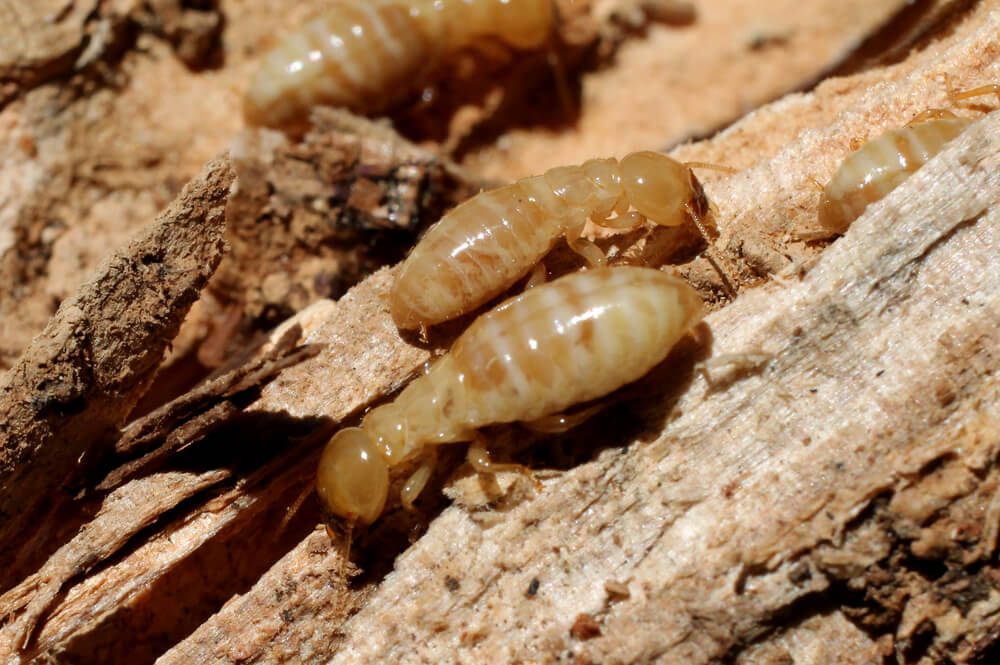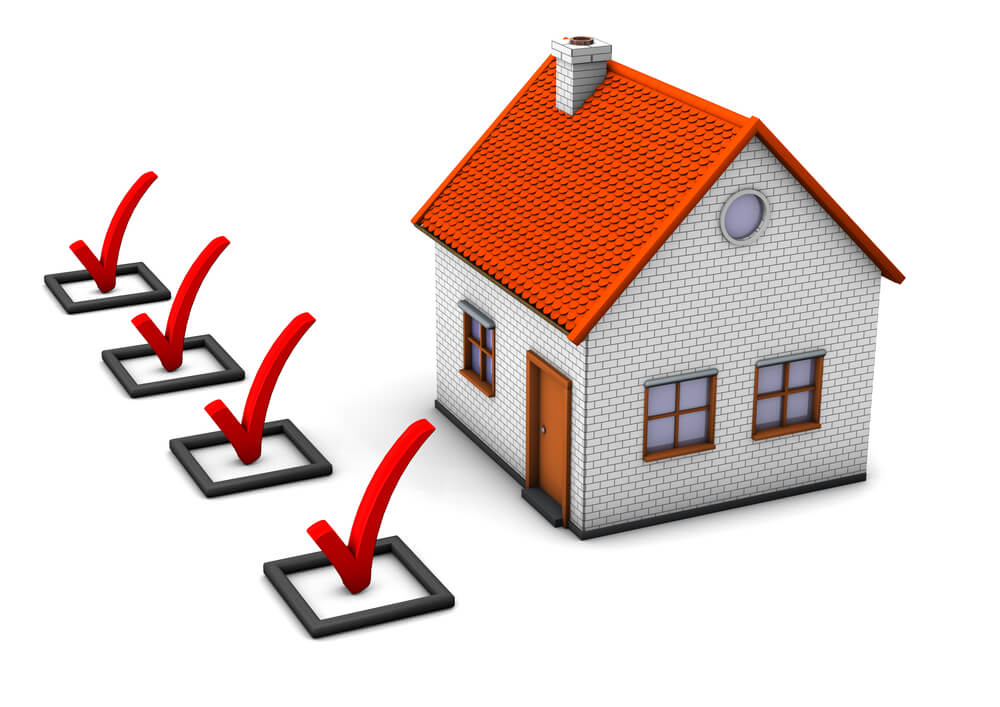Think of your home inspector as your personal detective, who uncovers potentially costly problems. Since you’re probably in love with your home at this point, you don’t want him uncovering significant flaws. Don’t panic. This home inspection checklist will keep you calm and help you understand how the process works.
How to find a good home inspector
Of course, buyers and sellers want the home inspection to go smoothly. By this point in the home buying process, buyers have invested a lot of time and emotion into the process. Sellers, on the other hand, just want to sell their property! So, there’s anticipation on both sides when it’s time for the home inspection.
The buyer chooses the home inspector. Choose someone who takes his time, finds problems, and offers you a detailed report with photos and solutions. A good home inspection report helps a buyer make their case to a seller when requesting repairs as part of the negotiation.
Most Realtors® know a reliable home inspector that they work with often. This person usually offers a good price, schedules jobs quickly, and provides a reliable inspection service. Realtors® want happy homeowners, so they work with inspectors who get the job done right. They want the inspector to find the problem rather than a homeowner once they move in. So ask your real estate agent for a recommendation.
Look for companies with a home inspector certification. When you hire an inspector with an American Society of Home Inspectors (ASHI) certification, you’re getting a qualified inspector. ASHI inspectors follow strict standards, pass a rigorous technical exam, and follow a strict code of ethics.
Inspectors can’t call themselves ASHI “certified” until they professionally examine more than 250 homes. ASHI means experience!
Kansas City home inspections
During an inspection, the professional looks at the structure, foundation, exterior, roofing, plumbing, electrical, heating, air conditioning, interiors, ventilation, and fireplaces.
A home inspection is mostly visual. Your inspector will use a few tools like a thermometer, water meter, and possibly a gauge to check for drafts.
While an inspector provides a good overview of the systems, you may need a specialized technician if you or your inspector have specific concerns. For example, if you’re worried about the condition of the electrical wiring, you may request a second opinion from an electrician. Same for the HVAC system and so on.
Before you hire your home inspector, ask him what services he provides. These are 6 terrific questions to ask your home inspector, to make sure you’re getting the most bang for your buck when you hire that company. In Kansas City, consider a termite and radon inspection. While not standard, they’re common in this area. Some inspectors provide these services while others require you to hire a company that specializes in radon and another one for termites.
The inspector provides a comprehensive report, with images and recommendations, at the end of his inspection. It’s often 50+ pages detailing all sorts of safety issues. Some are more critical than others. Your Realtor® can help you decide which ones to ask the seller to fix.
[trx_call_to_action title=”Ultimate Kansas City Homebuyer Guide — FREE!” style=”1″ accent=”no” custom=”no” link=”staging.sallysellsmoore.com/buyer-guide/” link_caption=”Get My Free Guide Today”][/trx_call_to_action]Missouri home inspection checklist
Missouri home inspections take several hours, depending on the size of the home and its condition. The buyer attends with the Realtor®.
The seller does not attend the inspection.
During the inspection, you have a lot of time in the house. That’s your chance to get familiar with the home, spend time in it, and learn about the systems in the home and their condition. Some inspectors show you potential problems as they find them, or point out things about the house that are important to know.
Here’s a home inspection checklist, detailing the areas the inspector checks.
Roofing
During a roofing check, the inspector looks at the age and condition of the roof.
The inspector also looks for missing shingles, damaged shingles, aging shingles, and gutter problems.
If the roof is older and in poor condition, you may ask the seller for a new roof. Or, negotiate an allowance if you’ll have to replace it at a later date. Knowing the condition helps you financially plan.
Exterior
The inspector checks the walkways and driveways for cracks and settling. In Kansas City, settling is common. It’s a safety and potentially a trip hazard. Mudjacking solves the problem by lifting the concrete. As a home buyer, you want to know about this issue before you buy a home.
Wood rot is another big problem with Kansas City homes. It’s common near windows and doors. It’s caused by moisture, whether it’s the weather, leaky windows, or un-primed wood. Depending on the extent of the damage, wood rot repair may require replacing the wood around the window, or you may need to replace the window.
During an exterior inspection, the inspector also checks around the house including the garage doors and outdoor water sources like spigots.
Structure
The structure part of the home inspection looks at the home’s skeleton. That includes the foundation, framing, and walls.
Foundation issues are costly. So, it’s crucial the inspector check the foundation for problems.
Plumbing
The inspector makes sure there are no plumbing leaks, the water heats, and the proper safety mechanisms are attached to the water heater.
During the inspection, water leaks on ceilings or walls will be noted. They may be a sign of a plumbing or roofing problem.
Mold and water damage are two significant concerns when you’re buying a new home. They could be a sign of a plumbing, roofing, or HVAC problem.
Electrical
Next on the home inspection checklist, electrical. During a home inspection, the professional checks your outlets, breaker box, fuses, and voltage to make sure it’s up to code.
Electrical issues in older homes prevent challenges, as these homes are usually not up to code. In newer subdivisions like Grain Valley and Blue Springs, electrical problems are less of an issue than in Brookside. However, the inspector may find a few small things.
It’s up to you to decide which electrical issues you’ll fix and which ones the seller should fix ahead of time.
Heating and air conditioning
In Kansas City, where it gets cold in the winter, your heating system is a critical component of a home. Your inspector checks the age of the system and its condition.
The certified home inspector checks the heating system, air conditioner, ductwork, insulation, vents, flues, and chimneys to make sure they’re safe and in proper working condition.
Carbon monoxide is a safety concern with heating equipment, so it’s important to have these appliances checked.
While the home inspector understands how the heating and cooling system works and common problems associated with it, he’s usually not an HVAC technician. So, if he has any concerns, he may suggest having an HVAC company service the heating and cooling system.
Appliances
The ASHI certified inspector also checks your appliances. For example, he makes sure the stove reaches the proper temperature.
He also tests the dishwasher to make sure it completes a cycle and drains properly.
Kansas City Radon Mitigation
Radon is a big problem in Kansas City, due to our soil. It’s naturally in the soil, rock, and water. It makes its way inside your home through cracks and holes in the foundation.
Radon is odorless and tasteless. It’s in the air we breathe, which is why it’s a hidden hazard. The Surgeon General found radon is the second leading cause of lung cancer in the United States.
However, don’t let radon scare you so much that you walk away from a home. While it is a health hazard the Environmental Protection Agency points out there’s a simple solution.
If you’re buying a home in the Kansas City area, get it tested for radon. Nearly one in 15 homes has elevated radon levels. In Kansas City, the numbers are often higher as the metro’s counties are in high hazard areas.
Jackson, Clay, and Cass County Missouri homes are located in the government’s red radon zone. That means indoor air typically has radon levels that are above 4 pCi/L. The EPA suggests fixing homes above this level.
Johnson and Leavenworth Counties Kansas are also in the red zone.
Most homeowners (sellers) have never tested for radon. Yet, the health hazard is in their home!
Even if a homeowner already has a radon mitigation system, home buyers should verify it’s working with a radon test.
Some Kansas City home inspectors provide this service, and others require you hire an outside radon specialist.
Related Link: Radon in Kansas City: What You Need To Know
 Termites
Termites
In Kansas City, termites are another concern. Get an inspection because termites can cause extensive damage. It’s best to find the problem before it gets out of hand.
Like radon, some home inspectors include this service. Others require you to hire a company that focuses only on termites.
Home inspection process
Whether you’re the buyer or seller, don’t fear the home inspection process. It’s another part of the real estate transaction for both parties.
A Missouri home inspection checklist should include the points above. The American Society of Home Inspection Checklist also covers a few other areas like septic systems which are not common in the suburbs of Kansas City. If you have acreage, though, this is something to consider.
As a buyer, you probably won’t get the seller to fix everything.
As the seller, be willing to compromise and make improvements. That’s a big home buying mistake in a seller’s market.
A Realtor® offers valuable advice throughout the home buying process, but especially during and after an inspection. Most of the time the inspection leads both parties to re-negotiate the deal.
Plus, your Realtor® will know electricians, heating and cooling technicians, and other home service providers who can fix concerns detailed in the inspection.
It’s best to have a trusted advisor on your side to protect your financial interest in a home.





 3751 NE Ralph Powell Road
3751 NE Ralph Powell Road 

